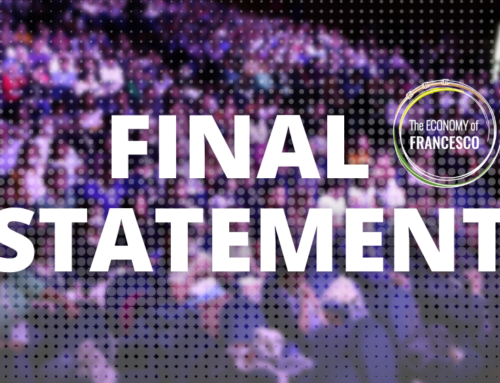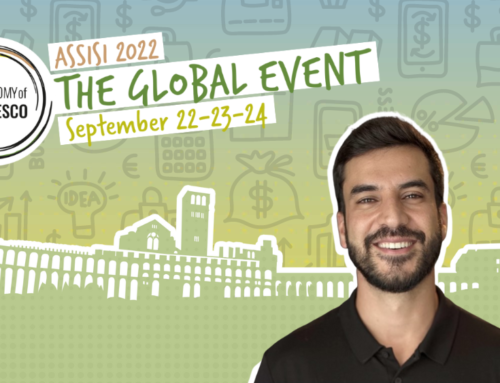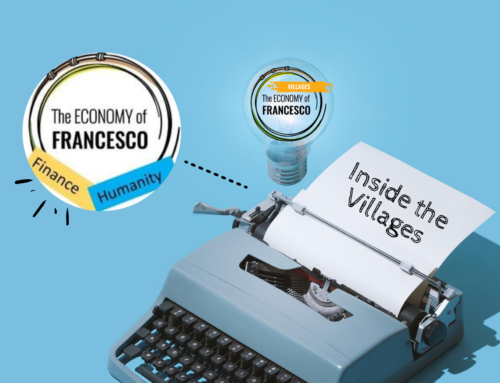Is it possible for finance to be at the service of humanity? If so, how?
The perspectives from a couple of Economy of Francesco participants, both are enrolled in the Finance and Humanity village.
Andrea Calef. Lecturer in Economics at the School of Economics of the University of East Anglia (UK)
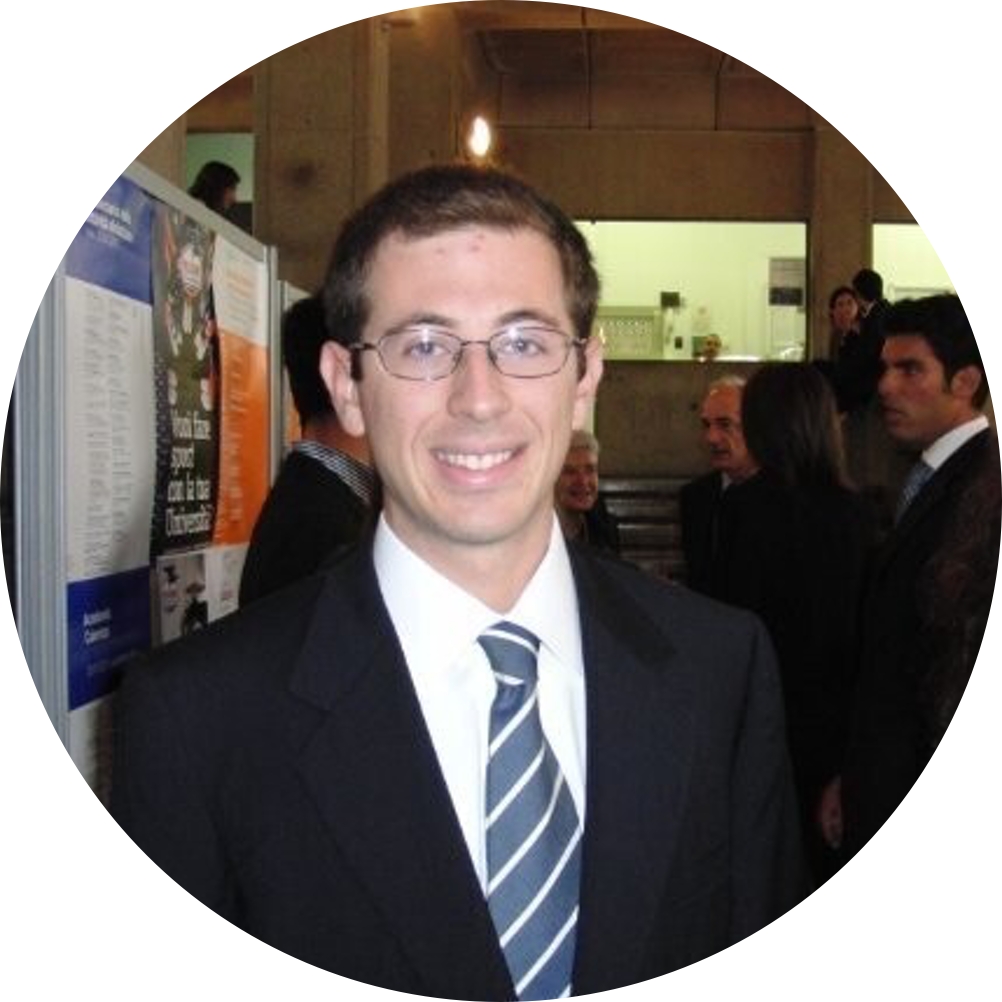
Vicky Villarreal. Lawyer, Entrepreneur’s Legal Adviser and Grants Manager in the Archbishop’s office of Santiago de Cuba
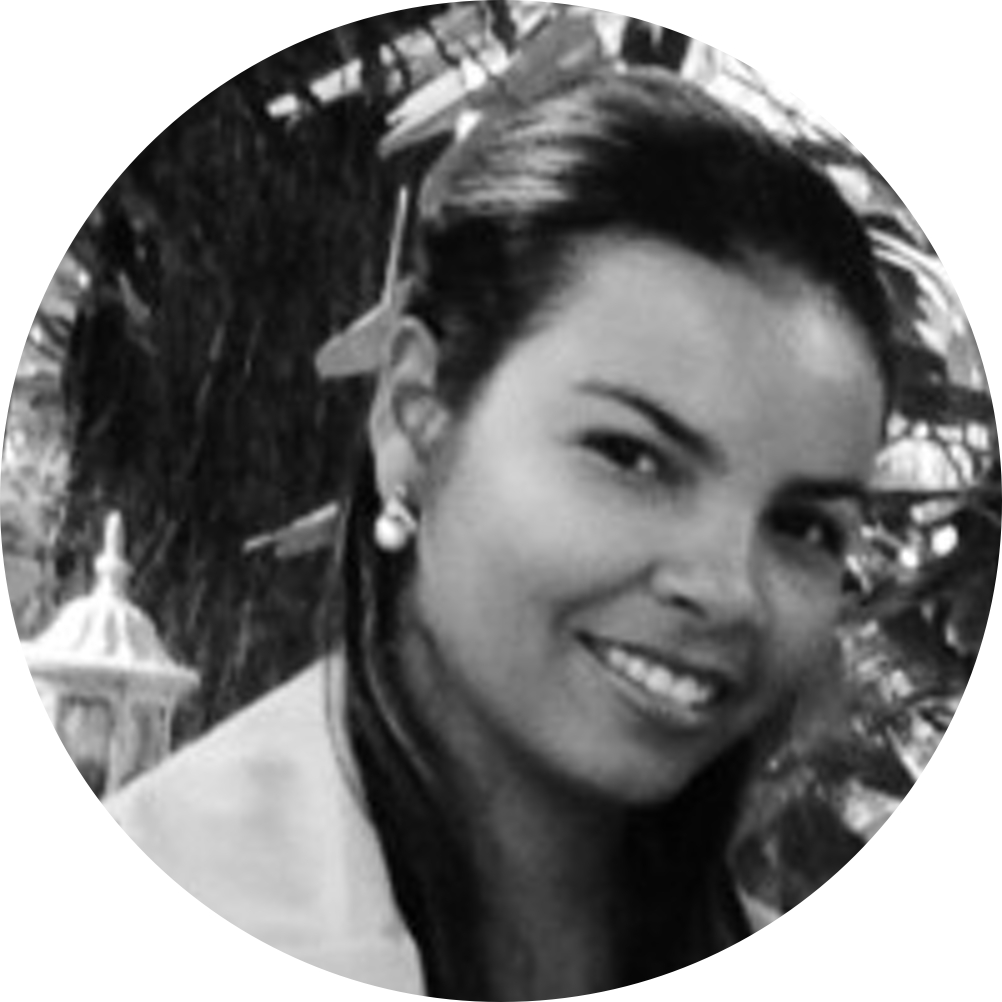
It is possible that finances can be at the service of humanity?
Andrea: The answer to this question is (and should be!) a strong yes. The role of finance is one of the topics that the Finance and Humanity Village and, specifically, the subgroup I am coordinating is trying to tackle. We started from these very basic concepts, i.e. the way to channel funds from those who are in surplus to those who lack for their investments, to conclude that finance can have a role and an impact different with respect to the ones it currently has. Together with this theoretical approach, we are also trying to see and analyse the reality, what is currently good and what is unfortunately bad, already existing and new trends. We aim to judge through the Social Doctrine of the Church’s lens in order to provide some concrete proposals. We are also lucky for the support of our Seniors and our Village coordinator, Andrea Roncella, which I have spent a lot of time to organise and think with. I like reminding Dawn Carpenter’s expertise on contributive justice and Gordian Godenus’s one on impact investments, which seem to be a rather promising tool to link finance to humanity, foster economic growth and increase financial inclusion.
Vicky: Definitely. We start from that premise! Finances can and should be at the service of the human being.
The experience in the village Finance and Humanity
Vicky: In the village of Finance and Humanities we feel the need to get to know each other (who we are, what we do, what we are committed to …) and on the premise that finance must always be at the service of humanity, we subdivide ourselves into 6 groups to work in key areas that may compromise our premise, these were:
1) Opportunities and threats posed by the covid-19 outbreak in light of the vocation of financial actors to serve humanity (for the sake of rethinking the real contribution of financial institutions to the economy, the limits of setting contemporary asset prices, the role of technological disruption).
2) Consequences on the real economy, in particular through the eyes of excluded people (in order to distinguish the extraction of value from the creation of value in our economy and how to promote the latter and reduce the former).
3) The future of sustainable finance (i.e. how sustainable finance is reacting to the crisis of traditional financial markets)
4) The role of regulation and financial authorities (i.e. what role does solidarity play for the World Bank and other development banks?)
5) The need for and awareness of financial literacy (i.e. how financial literacy can help soften the reaction of retail investors to external shocks in the future)
6) Public finance in a post-covid-19 world (to combat the crisis, all countries will have to increase their deficits, which will have important redistributive effects, whatever the mode of financing chosen: debt; increase or ad hoc taxes, inflation)
The work in subgroups within our village is precisely the implementation of what we dream of on a larger scale: a bottom-up process where everyone is included. Within subgroup 2, the members decided to organize a group activity every 2 weeks, which could be a group discussion about an ongoing project or initiative, or a mini-session to exchange knowledge on a topic of interest to the majority.
In this way we learned with Rómulo, from Sao Paulo in Brazil, the potential of linking projects that target the homeless and interconnect in steps with others that can foster entrepreneurship, innovation and real inclusion in the economic gear of the most excluded. Through Ngan, we learned about initiatives that are being developed in Vietnam in terms of financial education to help small and medium-sized entrepreneurs to be able to achieve digital economic activities and adapt to the use of electronic commerce platforms. From Argentina, our friend Agustina showed us that having access to computers and broad bandwidth in Digital Points can reduce economic exclusion and be a solution to improve the real economy. And from Cuba, I had the opportunity to share projects that are supported by social and solidarity businesses to support the charitable work of communities that serve people in situations of socio-economic vulnerability.
Thanks to the expertise of young people like the Peruvian Carla, based in Germany, we were also able to learn about novel topics such as Natural Capital based on the development of ecosystem services, reserves and natural functions. While from the hand of our seniors Simone and Elena, from Italy, we gained a fantastic understanding of how ethical banks, Monti di Pietà, cooperatives and microfinance actors generate cooperation and provide responsible financing (adequate access to loans) for people excluded from traditional structures. In the last learning session Danny and Jonathan, in England, gave us a very clear and comprehensive explanation of why central banks may (or may not) have the space to support that national financial systems function regularly (even during times pandemic) as well as economic actors in the real economy, using credit in hard currency or foreign exchange.
The group work sessions have been fantastic to advance in the creation of a proposal that allows us to share what we have done, and engage a broader audience in calls for action and concrete projects through which finance, in an inclusive and positive manner, can impact the real economy and human life. Our final product, on which we are still working, will surely be enriched by the rest of the proposals of the groups and villages that will make up the Pact for a better economy with Pope Francis. We walk there, called to be prophets, taking care of the process as well as the result, towards Assisi!
An experience destined to last over time
Andrea: During these months there have been many activities. I am enjoying a lot working in groups. If a goal has been achieved for sure, it is the creation of a community. In fact, I am not only working with my village members, but also with the participants who are in other villages. There is an overwhelming enthusiasm, which has never vanished, even after the news that November 2020’s Event will be only online. Taking into consideration just the themes of my village, I do think that we are still starting the process and most of the fruits can be gathered in one or two years time. Ergo the Village experience should perhaps continue even after the event. I also wish to mention the on-life webinars. They have been pretty useful for us, to get to know better the several themes of the different villages, and for reaching the external communities. The latter is a task we will have to keep on developing, perhaps also in other forms.
What is your inner call?
Andrea: As I wrote in my application, the first thing I thought was that, if the Pope calls, I need to provide an answer. Then, more rationally, I took some days to pray and reflect on whether I could have been able to provide even a small contribution to fulfill the Holy Father’s request. Despite (or perhaps because of) being an academic, I was wondering whether I was the right person for such a responsibility that Pope Francis bravely and surprisingly put on young people. So, after praying and reflecting, I wrote my application in spirit of obedience to the Pope and service to the Lord. Ex post, it is pretty easy for me to write that I am very glad that I had this opportunity. I feel the responsibility and I am trying to provide a good contribution together with the whole community of the Economy of Francesco, which is full of talented young people. This is the Road to Assisi, but it is just the first step to concretely witness our Faith in the world, who desperately needs the Lord, without being of the world.
Vicky: During our journey to Assisi, I have felt the call to commit myself in my diocese to bottom-up processes that start from the needs of our communities and foster their empowerment. It is about identifying potentialities that allow us to get involved in processes where, through economic-financial tools, we can be part of the solution of our own problems. Thus, for example, we are planning for the first time the implementation of initiatives under the social business approach for the benefit of vulnerable people, so that, instead of completely depending on external aid in the form of donations, the communities and ecclesial movements committed in the service of those most in need they can develop their charitable activity in a sustainable way.

